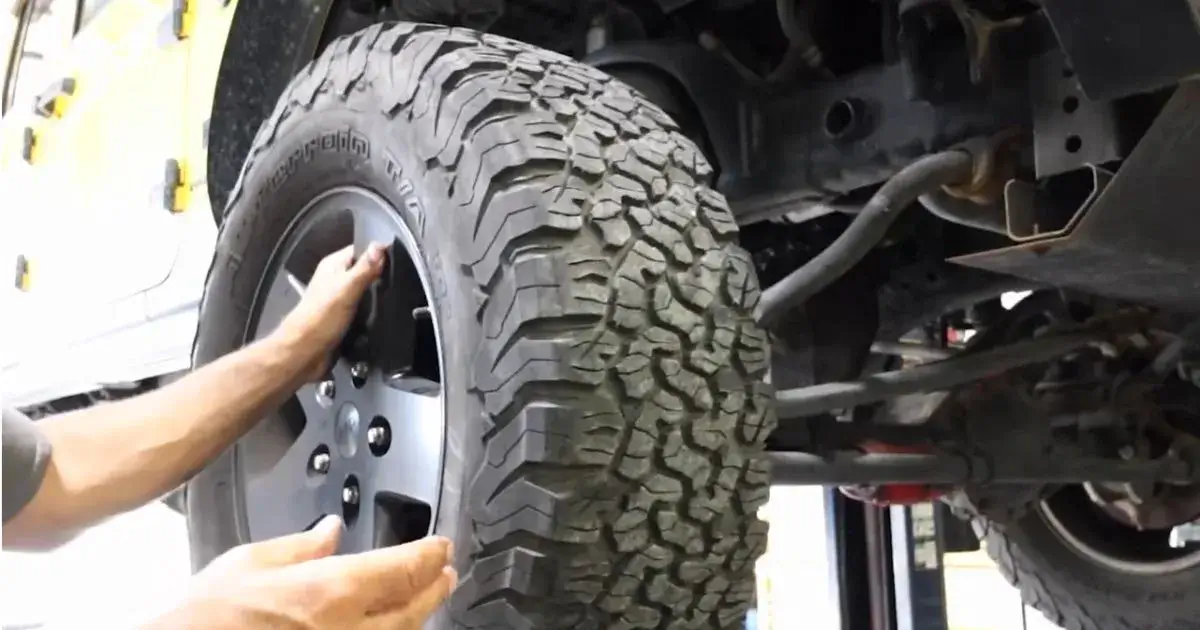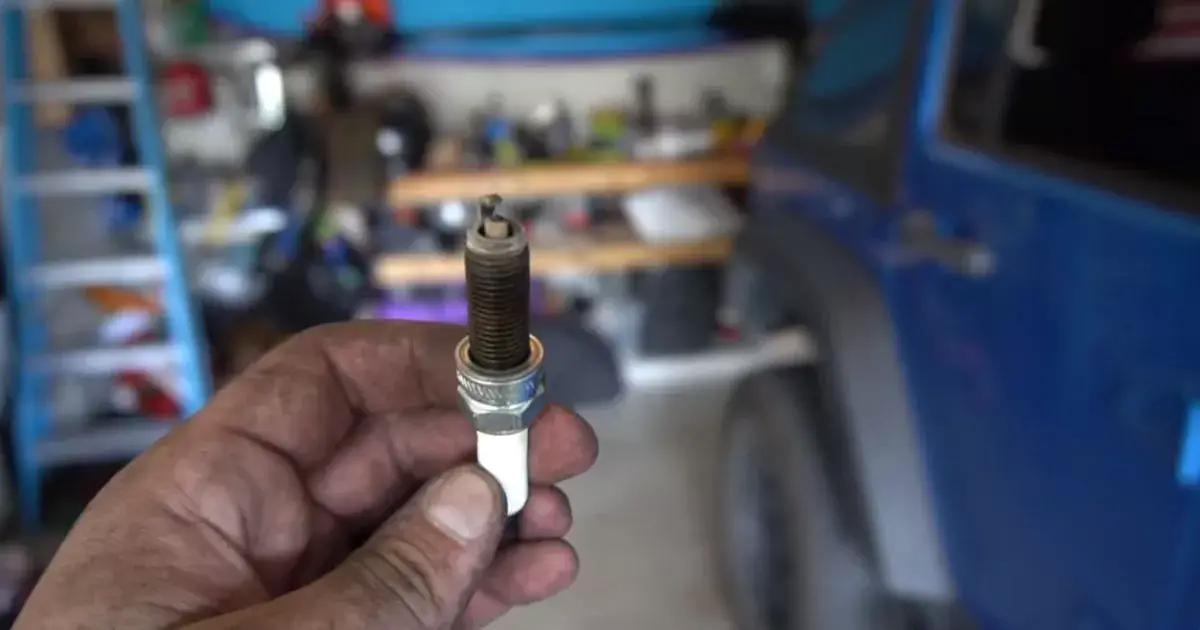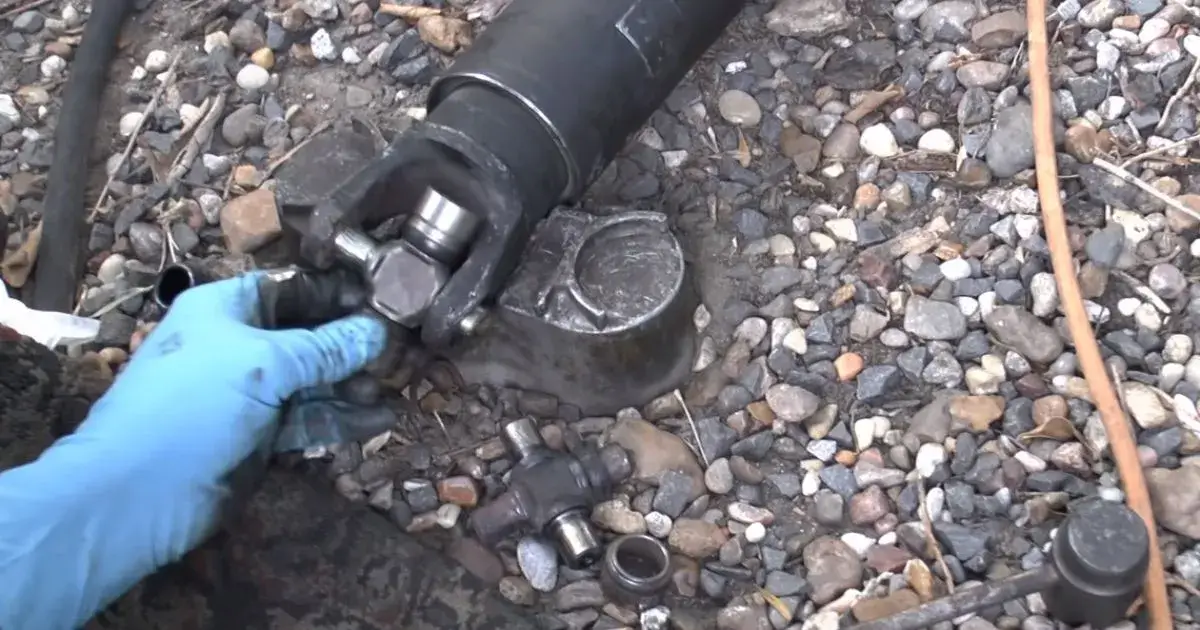Jeeps are known for their ruggedness and off-road capabilities. However, one common problem that Jeep owners face is shaking when accelerating. This can be a frustrating and dangerous experience, especially when driving at high speeds.
There are many potential causes for a Jeep to shake when accelerating, including:
- Worn-out or damaged suspension components
- Unbalanced tires
- Misaligned wheels
- Worn-out or damaged driveshaft
- Issues with the transmission or engine
In this article, we will explore the common causes of a shaking Jeep and what steps you can take to fix the issue.

What Does It Mean When Jeep Shakes When Accelerating?
When a jeep Cherokee shakes while accelerating, it typically means there is an issue with the vehicle’s suspension, tires, wheels, or drivetrain. The shaking can be caused by a variety of factors, such as worn or damaged suspension components, imbalanced or worn tires, misaligned wheels, or issues with the transmission or differential.
In some cases, the shaking can also be caused by more serious problems, such as engine issues or worn-out CV joints. The exact cause of the shaking will depend on the symptoms and the specific make and model of the vehicle.
A thorough diagnostic inspection, including a visual inspection and a test drive, can help identify the cause of the shaking and determine the best course of action to repair it.
Why Does My Jeep Feel Like Its Shaking?
Wheel balance issues
Wheel balancing refers to ensuring that each tire and wheel assembly is properly balanced in terms of weight distribution. An imbalanced tire can cause a Jeep to shake when accelerating, especially at higher speeds.
Common causes of imbalanced tires include uneven tire wear, damaged wheels, and improper tire mounting.
Worn out tires
Worn-out tires can also cause a Jeep to shake when accelerating. As tires age and lose their tread, they become less capable of providing a smooth and stable ride. Additionally, worn-out tires can lead to other problems, such as poor handling and reduced traction.
Suspension problems
Suspension problems, such as worn-out shocks and struts, can cause a Jeep to shake when accelerating. This can be due to the suspension’s inability to absorb road vibrations and provide a smooth ride. Worn-out or damaged suspension components can also lead to poor handling and increased stopping distances.
Engine misfires
Engine misfires can cause a Jeep to shake when accelerating. An engine misfire occurs when one or more cylinders in the engine do not fire properly. This can cause a rough idle and decreased engine performance, and can also result in a shaking sensation while accelerating.
Drivetrain problems
Drivetrain problems can also cause a Jeep to shake when accelerating. The drivetrain includes components such as the transmission, differential, and driveshaft, and any problems with these components can cause a transfer of vibrations through the vehicle and result in a shaking sensation.
Common drivetrain problems include worn-out bearings, damaged driveshafts, and failing transmissions.
Diagnosing the Problem
Visual inspection
A visual inspection is the first step in diagnosing whether jeep shakes for hit a bump or other causes . This can involve examining the tires and wheels, suspension components, and drivetrain components for signs of wear or damage.
A visual inspection can also help identify any other issues that may be causing the shaking sensation.
Test drive
A test drive is also an important step in diagnosing the cause of a shaking Jeep. During a test drive, the Jeep should be driven at various speeds and conditions to identify any patterns or areas where the shaking is most pronounced.
The test drive can also help to rule out any issues that may be related to road conditions or driving habits.
Scan for diagnostic codes
A scan for diagnostic codes can also be performed to diagnose the cause of a shaking Jeep. This involves using a diagnostic scanner to read the engine control module and retrieve any fault codes.
Fault codes can indicate issues with the engine, transmission, or other systems, and can help diagnose the cause of the shaking.
Inspection of suspension and drivetrain components
A thorough inspection of the suspension and drivetrain components can also help diagnose the cause of a shaking Jeep. This can involve inspecting the shocks, struts, springs, and other suspension components, as well as the transmission, differential, and driveshaft.
Any issues with these components can cause vibrations that result in a shaking sensation.
Balancing and alignment check
A balancing and alignment check can also be performed to diagnose the cause of a shaking Jeep. This can involve checking the balance of each tire and wheel assembly, as well as the alignment of the tires.
Imbalanced tires or incorrect alignment can cause a shaking sensation and can be easily corrected with a balancing and alignment service.
How to Fix

Wheel balancing and tire rotation
If the cause of the shaking is determined to be a wheel balance issue, a wheel balance and tire rotation service can help resolve the problem.
This service involves rebalancing the tires and rotating them to ensure that they wear evenly. Additionally, any damaged wheels can be repaired or replaced.
Suspension repair
If the shaking is due to suspension problems, repairs may be necessary. This can involve replacing worn-out or damaged suspension components, such as shocks, struts, or springs. Suspension repairs can improve the handling and stability of the Jeep and reduce vibrations.

Engine repair
If engine misfires are causing the shaking, engine repairs may be necessary. This can involve replacing faulty components such as spark plugs, ignition coils, or fuel injectors. Engine repairs can help restore the proper operation of the engine and improve performance.

Drivetrain repair
If drivetrain problems are causing the shaking, drivetrain repairs may be necessary. This can involve replacing worn-out or damaged components, such as bearings, driveshafts, or transmissions. Drivetrain repairs can help restore proper operation and improve the smoothness of the ride.
Importance of seeking professional assistance
If you are unsure about the cause of your Jeep’s shaking, it is important to seek assistance from a professional mechanic. They have the expertise and equipment to diagnose the problem and perform any necessary repairs.
Additionally, attempting to repair complex issues without proper knowledge or tools can make the problem worse and result in additional expenses.
Prevention of Shaking
Regular maintenance
Regular maintenance is key to preventing a Jeep from shaking when accelerating. This can include routine services such as oil changes, tire rotations, and suspension inspections.
By staying on top of maintenance, you can catch small problems before they become bigger issues and cause a shaking sensation.
Proper tire inflation
Proper tire inflation is also important in preventing a Jeep from shaking. Tires that are underinflated or overinflated can cause an imbalance and result in a shaking sensation. It is important to regularly check the tire pressure and keep the tires inflated to the recommended pressure.
Regular inspections
Regular inspections of the Jeep’s suspension, engine, and drivetrain can also help prevent shaking. A professional mechanic can perform a thorough inspection and identify any issues that may be causing a shaking sensation.
Addressing these problems early on can prevent more serious issues from developing and causing a shaking sensation.
Proper tire alignment
Proper tire alignment can also help prevent a Jeep from shaking. A tire alignment service can ensure that the tires are properly aligned and pointed in the same direction, which can help prevent uneven tire wear and reduce vibrations.
Regular wheel balancing
Regular wheel balancing can also help prevent a Jeep from shaking. A wheel balancing service can ensure that each tire and wheel assembly is properly balanced in terms of weight distribution, which can reduce vibrations and improve handling.
Regular wheel balancing can help prevent imbalanced tires from causing a shaking sensation.
Car Shakes When Accelerating at Low Speed
If your car shakes when accelerating at low speed, it could be a sign of a problem with your engine or transmission. There are a number of potential causes for this issue, so it’s important to have your car checked out by a qualified mechanic to determine the source of the problem.
- One possible cause of shaking at low speeds is an issue with the engine mounts. The engine mounts keep the engine securely in place, and if they’re damaged or worn out, it can cause the engine to move around and shake.
- Another possibility is that there’s something wrong with the transmission, such as a worn clutch or damaged gears. If your car is shaking when accelerating at low speed, don’t ignore it!
Bring your car to a reputable repair shop to have it diagnosed and repaired before the problem gets worse.
Car Shakes When Accelerating at High Speeds
If your car shakes when accelerating at high speeds, it could be a sign of a serious problem. Here are some possible causes of this issue:
- Worn-out tires: If your tires are worn out, they can’t provide the proper grip on the road, which can cause your car to shake.
- Loose suspension components: Another potential cause of shaking is loose suspension components. This can cause your car to lose stability and shake at high speeds.
- Engine problems: If your engine is having trouble running smoothly, it can also cause your car to shake while accelerating. This is usually accompanied by other symptoms like poor performance, strange noises, and increased fuel consumption.
- Brake problems: If you notice that your car only shakes when you brake hard or accelerate quickly from a stop, it could be an indication of brake problems.
Car Shakes When Accelerating But Not When Coasting
If your car shakes when you accelerate but not when you’re coasting, it’s likely that there’s an issue with your engine mounts. Engine mounts are what keep your engine in place, and if they’re damaged or worn out, it can cause your engine to shift around and vibrate.
This can be a pretty serious problem, so if you notice this happening with your car, take it to a mechanic right away to have it checked out.
Car Shakes When Accelerating at 60 Mph
When you’re driving down the highway and your car starts shaking, it can be a scary feeling. But don’t worry, there are a few possible explanations for why this happens.
- One reason your car might shake when accelerating at high speeds is because of tire issues. If your tires are unbalanced or worn out, they can cause your car to vibrate.
- Another possibility is that your wheels are out of alignment. This means that they aren’t pointing in the right direction and can cause your car to pull to one side or shake.
If you’re experiencing car shakes, the best thing to do is to slow down and take a look at your tires and wheels. If everything looks okay, then it’s probably just a case of bad road conditions causing a rough ride.
But if you notice any problems with your tires or wheels, be sure to get them fixed as soon as possible, so you can avoid any further damage to your car.
Front End of Car Shakes When Accelerating
If you’re experiencing a shaking sensation in the front end of your car when accelerating, it’s important to get it checked out by a professional as soon as possible. There are a few different potential causes for this problem, and only a trained technician will be able to diagnose the issue and recommend the best course of action.
- One possibility is that your car is suffering from wheel misalignment. This can happen if your suspension components are worn out or if you hit a large pothole or other objects while driving. Wheel misalignment will cause your tires to point in the wrong direction, which can lead to vibration and shaking when accelerating.
- Another potential cause is an imbalance in your tire treads. If one of your tires has more tread than the others, it can cause vibrations when you’re driving at high speeds. This can also be caused by a build-up of debris on one side of the tire treads. Again, a professional will be able to take a look at your tires and determine if they need to be balanced or replaced.
- Finally, engine problems can also lead to shaking and vibration in the front end of your car. If your engine mounts are worn out, they may not be properly supporting the weight of the engine, leading to shaking and vibration when accelerating. Alternatively, there could be an issue with one of the pulleys in your engine belt system.
A skilled mechanic will be able to identify these issues and make repairs as needed.
Why is My Car Shaking When I Push the Gas?
If your car is shaking when you push the gas, it could be a variety of different things. It could be something as simple as low tire pressure or a dirty air filter, or it could be something more serious like a problem with your brakes or suspension.
If you’re not sure what’s causing the problem, take your car to a mechanic and have them take a look.
FAQs
Why does my Jeep shake when I accelerate?
If your Jeep is shaking when you accelerate, it’s likely due to an issue with the drivetrain or suspension. This could be caused by worn out or damaged components, such as a damaged driveshaft or worn-out suspension bushings.
Can a misaligned wheel cause my Jeep to shake?
Yes, a misaligned wheel can definitely cause your Jeep to shake when you accelerate. When your wheels are not properly aligned, it can cause uneven wear on your tires, which can lead to shaking and vibrations when you accelerate.
What other factors can cause my Jeep to shake when I accelerate?
Other factors that can cause your Jeep to shake when you accelerate include worn-out brake pads, damaged or worn-out axles, and issues with the transmission. It’s important to have your Jeep inspected by a professional mechanic to properly diagnose the issue.
Is it safe to drive my Jeep if it’s shaking when I accelerate?
If your Jeep is shaking when you accelerate, it’s best to have it inspected by a mechanic as soon as possible. Continuing to drive your Jeep in this condition can cause further damage to the vehicle and potentially put you at risk of an accident.
How can I prevent my Jeep from shaking when I accelerate?
Regular maintenance and inspections are key to preventing your Jeep from shaking when you accelerate. This includes checking and replacing worn-out or damaged components, such as tires, suspension bushings, and brake pads, as well as ensuring that your wheels are properly aligned. Regular oil changes and fluid checks can also help keep your Jeep running smoothly.
Wrap Up
In conclusion, a shaking Jeep when accelerating can be caused by several factors. To resolve the issue, it is important to diagnose the root cause and address it accordingly. A wheel balance check, tire rotation, or suspension repair may be necessary. Regular maintenance and inspections can also help prevent shaking from occurring in the first place.
If you are unsure about the cause of your Jeep’s shaking, it is recommended that you seek assistance from a professional mechanic. With proper care and attention, your Jeep can continue to provide you with the smooth and safe driving experience you deserve.

